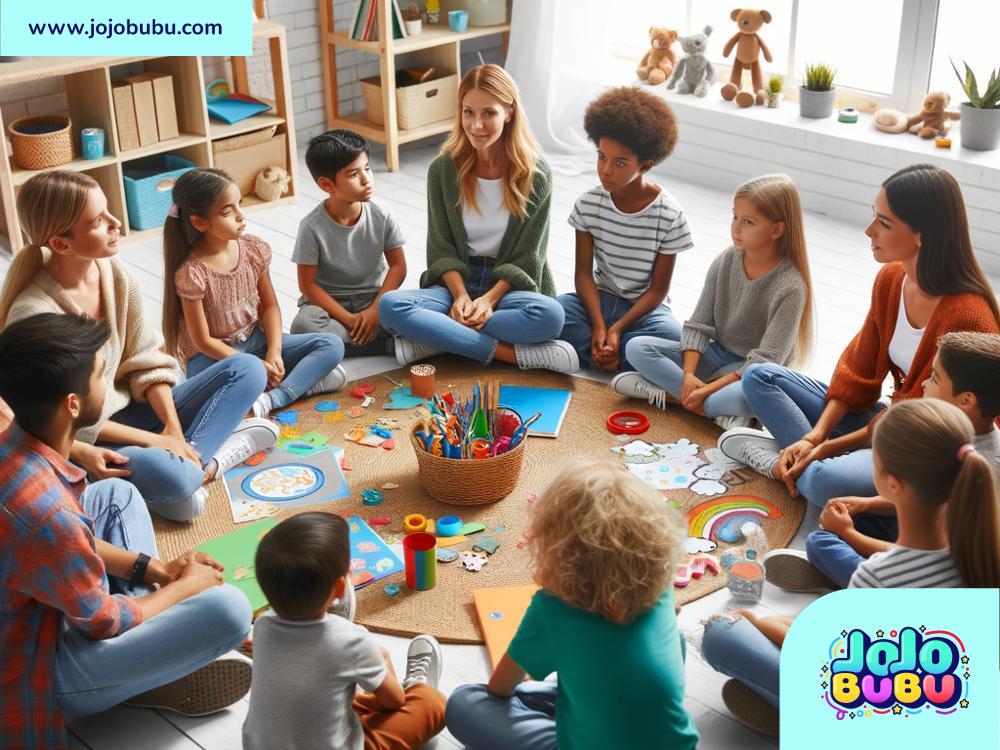The Importance of Sibling Support Groups and Workshops
When people think about support groups, they usually think of groups for parents or individuals facing challenges. But what about brothers and sisters? Siblings play an important role in family dynamics, especially when one child has a disability, health condition, or special needs. Sibling support groups and workshops are becoming more common as people recognize how crucial it is to provide a space for siblings to express their feelings, learn coping strategies, and bond with others who share similar experiences.
What Are Sibling Support Groups and Workshops?
Sibling support groups and workshops are safe spaces created specifically for brothers and sisters of individuals with special needs, disabilities, or chronic illnesses. These groups provide opportunities for siblings to talk about their feelings, share experiences, and build friendships with others who understand what they are going through.
While parents often attend support groups focused on caregiving, siblings, especially younger ones, may feel left out or misunderstood. These workshops aim to fill that gap, helping siblings feel supported and empowered while equipping them with tools to handle the unique challenges they face.
Why Are Sibling Groups Important?
Growing up with a sibling who has special needs or chronic health challenges can be both rewarding and challenging. Siblings often learn empathy, patience, and resilience, but they may also face confusion, loneliness, or frustration. Sometimes, siblings feel overlooked because so much attention is focused on the child with special needs. Other times, they may feel guilt for wishing they could have more time with their parents or live a "normal" life.
Sibling support groups offer a safe space to process these feelings. Children and adults in these groups quickly realize they’re not alone. They connect with others who understand the ups and downs of growing up in a family that has unique needs, and they learn ways to cope, manage emotions, and nurture sibling relationships.
What Happens in Sibling Workshops?
Every sibling workshop is a little different depending on the age of the participants and the goals of the program. Here are some common activities in sibling workshops:
-
Sharing Experiences
Siblings are encouraged to talk about their feelings and share their unique stories. They might talk about what it’s like to have a sibling with autism, Down syndrome, or another condition. Through sharing, participants often realize that others feel the same way, which helps reduce feelings of isolation. -
Building Coping Skills
Workshops often include activities to teach coping strategies for stress, frustration, or emotional overwhelm. For example, siblings may learn mindfulness exercises, breathing techniques, or creative outlets like art and journaling. -
Playing and Bonding
Younger siblings especially benefit from fun, interactive games that help them make new friends. Many workshops incorporate activities that lighten the mood, fostering connection and trust among participants. -
Learning About Disabilities
Sometimes, siblings don’t fully understand their brother or sister’s special needs or condition. Workshops might include informational sessions to teach siblings about these challenges in a simple, age-appropriate way. Having this knowledge helps them develop patience and compassion. -
Problem Solving
Older siblings may benefit from discussions about solving specific problems—like handling peer questions about their sibling’s condition or managing jealousy when their sibling gets extra attention. These sessions provide practical advice and often include role-playing scenarios. -
Celebrating the Sibling Bond
Many workshops focus on the positives—celebrating the love, strength, and special connections siblings share with one another.
Who Are Sibling Workshops For?
Sibling workshops are open to siblings of all ages. While young children require simpler activities and high-energy games, teenagers and adults often benefit from deeper conversations and reflective exercises.
• Young Siblings: Young children may not fully understand why their brother or sister needs extra attention. Workshops help them feel included and show them how important their role is in their sibling’s life.
• Teen Siblings: Teenagers often face unique challenges, such as balancing their social lives, academics, and responsibilities at home. These workshops offer a safe space to talk about the pressures they feel and guide them on how to prioritize self-care.
• Adult Siblings: Even as adults, many siblings continue to play a supporting role in their sibling’s life, whether through caregiving or emotional support. Workshops for adult siblings often focus on long-term planning and building a network of support.
Benefits of Joining a Sibling Support Group
The benefits of joining a sibling support group or workshop extend far beyond the meeting itself. Here’s what siblings gain:
- Connection: Meeting others who understand helps siblings feel less alone.
- Confidence: Learning coping strategies and communication skills can boost confidence in handling tough situations.
- Relief: Workshops reduce feelings of guilt, frustration, or resentment by offering a space to talk openly.
- Perspective: Understanding their sibling’s condition can help participants see the situation in a new, compassionate light.
- Life Skills: Sibling workshops often teach valuable tools, from stress management to effective communication.
Finding a Sibling Support Group
If you think a sibling support group could benefit your family, start by searching for programs in your area. Many organizations focused on disability support, like community centers or nonprofit groups, offer sibling-specific workshops. You can also check online resources, as virtual support groups and webinars are becoming more popular.
Final Thoughts
Siblings are a vital part of any family, and their feelings deserve just as much attention as everyone else’s. Sibling support groups and workshops offer a space where brothers and sisters can feel understood and valued. These gatherings not only build stronger individuals but also foster healthier family relationships. If you’re looking for a way to help a sibling feel supported, consider exploring these resources together—it could make all the difference!

